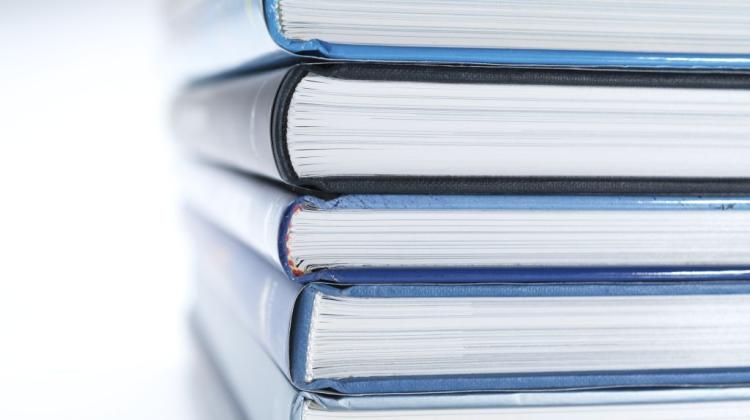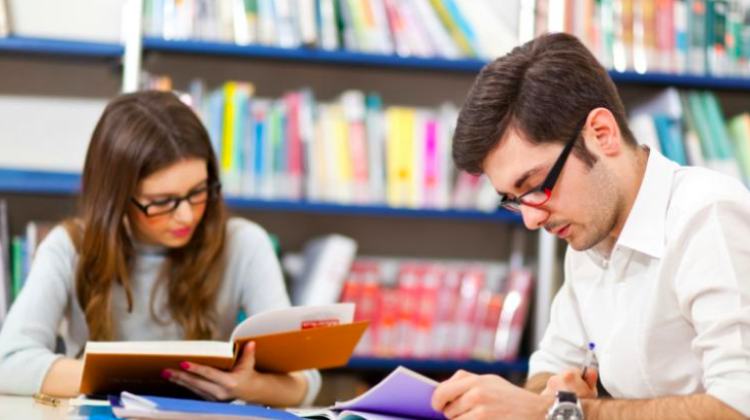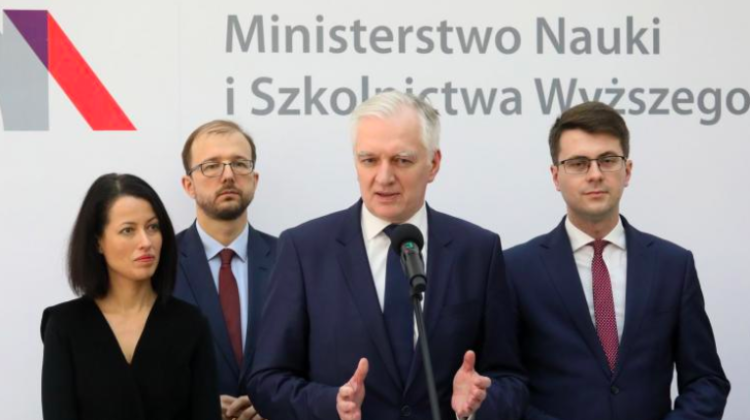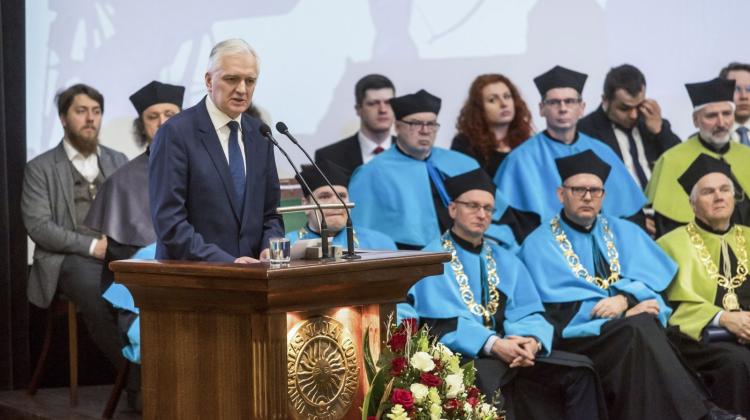Gowin: I am proud that higher education will celebrate 100 years of independence with a reform
 Photo: Fotolia
Photo: Fotolia
I am proud that Polish science and Polish higher education will celebrate the 100th anniversary of Poland regaining its independence by introducing the reform - Deputy Prime Minister, Minister of Science and Higher Education Jarosław Gowin said on Monday.
Gowin attended the inauguration of the academic year at the Silesian University of Technology in Gliwice. It is the oldest technical university in the region and one of the largest public universities in Silesia. It currently educates approx. 21 thousand students.
During his speech, the Deputy Prime Minister also referred to next year\'s 100th anniversary of Polish independence. "I am proud that Polish science, Polish higher education will celebrate this great anniversary in the best possible style, by introducing the reform that will give Poland and Polish citizens a powerful impulse for further development. This reform is a great opportunity not only for universities, students, it is an opportunity for the entire Poland and I believe we will be able to use this opportunity" - he emphasised.
According to Gowin in the history of the Polish nation and state, "all great things began with changes in the sphere of education and science".
"The rise of the University of Kraków, the later Jagiellonian University, laid the foundations for the golden and silver age of the First Republic in 1364. In the eighteenth century, when the Polish state fell into decline, there was a number of priceless initiatives that had emerged from the scientific community: Collegium Nobelium of Stanisław Konarski, National Education Commission, reform of the University of Kraków conducted by Kołłątaj or the magnificent phenomenon of knight schools" - he reminded.
He added that although those initiatives did not save the Polish state from the fall, they resulted in the Constitution of May 3. "The memory of those achievements allowed us to save our national identity during difficult times of partitions" - he noted.
After 1918, when Poland regained its independence, the academic elites at the highest European level contributed to the reconstruction of the Polish state and to its many successes. The tragic fate of the professors arrested during Sonderaktion Krakau and murdered in 1939 is the best, tragic proof that the invader who wants to destroy the nation targets primarily the intellectual elite" - continued Deputy Prime Minister.
He also mentioned the period after 1989. "We have a reason to be proud of what we have over nearly 30 years, and again, these achievements are largely a work of the Polish science. But we all have the feeling that those twenty few years could have been used better, that what the economists call a medium-growth trap, in simple terms a trap of mediocrity, is something we should break out of, something we can break out of. The initiative should again come first and foremost from the world of science" - he said.
During his speech, Gowin reminded the main assumptions of the new law on higher education and science, the so-called Law 2.0, also called the "Constitution for Science".
"We must focus on a significantly higher level of education of students, higher levels of research, we must unlock the career path in science, we must allow young doctors to become independent, because after Poland entered the European Union 30 thousand mostly young, talented scientists scattered not only throughout the Union but the world. We need to bring as many of them as possible back to Poland, to do research here" - he later told reporters.
Gowin also mentioned that while the new law included many "deep changes", those changes would be introduced in a progressive and evolutionary manner. "In a way that ensures that universities and the academic world have the time to prepare for these changes so that they do not cause confusion" - he emphasised.
The Deputy Prime Minister also expressed hope that, thanks to a broad and nearly 2 years long work and consultation on this project, the academic community would recognize this law as its own, rather than one imposed by the ministry.
He reminded that researchers can still report their comments to the bill on universities. He also assured that dialogue with the community will continue.
Gowin expressed hope that next spring the law would be adopted by the parliament and signed by the president, and in that case it would then enter into force on October 1, 2018. (PAP)
author: Agnieszka Kliks-Pudlik
editor: Agnieszka Tkacz
akp/ agt/ kap/
tr. RL
PAP - Science and Scholarship in Poland
Przed dodaniem komentarza prosimy o zapoznanie z Regulaminem forum serwisu Nauka w Polsce.


















